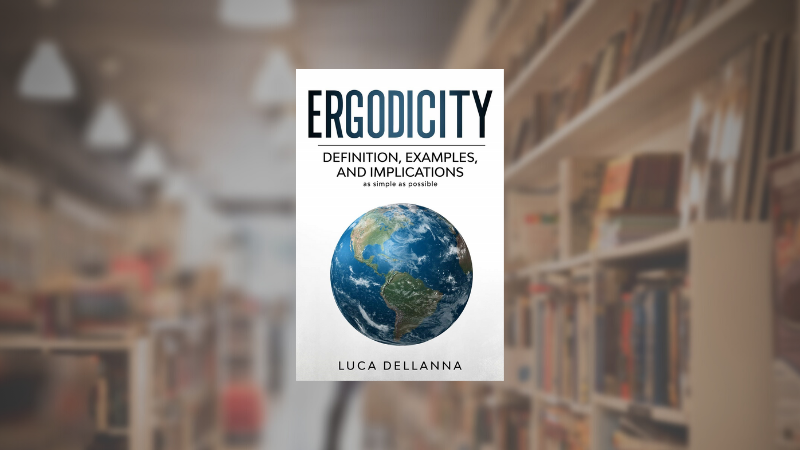
Book Note #5
Equity Intelligence 8th December 2023
Luca Dellanna's "Ergodicity" is a succinct yet compelling read. The book presents a lucid and comprehensive examination of a singular concept—ergodicity—which emerges as a crucial element for success across various facets of life, including marriage, business, family, happiness, and health. Although rooted in mathematical theory, its principles are widely applicable in everyday life. Ultimately, the book underscores a vital truth: the significance of high performance is only realized through the lens of survival.
Here are some ideas covered in the book. We highly recommend this book.
- Ergodic vs. Non-Ergodic Systems: In ergodic systems, population outcomes guide optimal decisions. In non-ergodic systems, individual lifetime outcomes diverge from the population average. In these systems, the population outcome doesn't align with the lifetime outcome of each component, making it challenging to use population outcomes for optimal decision-making.
- Time Horizons: Our decisions and potential regrets are based on implicit time horizons; too short a horizon leads to long-term regrets, too long leads to short-term regrets.
- Reversibility and Irreversibility: Success in life and activities like skiing depends not just on being the best, but on surviving. Strategies that maximize expected returns are only sensible if mistakes and misfortunes are reversible.
- Against the Law of Large Numbers: This principle is often irrelevant for individuals, as real-life situations usually offer limited trials. Avoid expecting to achieve average outcomes in activities that can't be repeated indefinitely.
- Game Overs: These include severe life events like bankruptcies, injuries, severe depressions, burnouts, and breakups, which significantly affect one's life trajectory.
- Lifetime Outcome vs. Population Outcome: Lifetime outcome considers the final result of an individual experiencing an event multiple times, while population outcome looks at the average outcome of many people experiencing the event once.
- Don’t Envy the Risks You Wouldn’t Take: It's important to differentiate between desiring an outcome and being willing to take the risks that produced it. Envy should be directed towards opportunities, not just outcomes.
- A System Can Work on Average but Fail Locally: Individuals should focus on local outcomes rather than average system performance, as averages can hide spikes in irreversibility.
- The Pitfalls of Centralization: Centralized organizations struggle with making decisions that are locally optimal because they rely on averages and cannot address the granular needs of diverse regions.
- The Barbell Strategy: This approach involves limiting exposure to irreversible risks while being aggressive with other risks, balancing safety and opportunity.
- Survival vs. Performance: In life, as in skiing, survival is more critical than peak performance; long-term survival leads to success over simply being the best in the short term.
- Risk and Prudence: The presence of irreversibility means risks should be taken prudently, without impairing future potential in the event of adverse outcomes.


